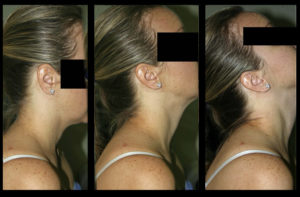The Impact of Whiplash (WAD)
Article by: Karen Keast | Last Updated: 16-11-2016
The impact of Whiplash
Whiplash is an acceleration-deceleration mechanism of energy transfer to the neck. It’s a prevalent musculoskeletal pain condition associated with disability, decreased quality of life, and psychological distress.
Usually the result of road traffic accidents, whiplash-associated disorders (WAD) cause neck pain, neck stiffness, deafness, tinnitus, dizziness, memory loss, headaches, dysphagia and jaw pain.
Recovery from Whiplash
Over fifty percent of people recover fully within 6 to 12 weeks. However, Professor Michele Sterling, an internationally recognised whiplash injury researcher says up to 50 percent of people who experience a whiplash injury never fully recover.
Professor Sterling, says it’s important for practitioners to be able to identify those at risk of poor functional recovery and those who will recover well. Better triage and streamline treatments should help prevent the development of chronic pain and disability.
“At the moment, everybody gets similar treatment. It could be that people who are going to do well get too much treatment. There is some evidence that over treating could aggravate them and delay their recovery,” she says.
“If we identify those at risk of not doing well, we might be able to provide different treatments to facilitate recovery.” “Most recovery occurs in the first two to three months and then the condition plateaus. “Doing something different, or additional, for some people may preduce the development of chronic pain and disability.”
Indicators for poor recovery
Professor Sterling says risk factors for poor recovery include those with initially higher levels of pain and higher levels of disability. “Other predictors are markers that we think represent changes within the way the central nervous system processes pain,” she says.
“After an injury, it’s normal for the central nervous system to become activated and the injured area becomes more hyper-sensitive as a protective type of mechanism. In some people, this doesn’t go away.” Psychological factors, such as anxiety and post-traumatic stress symptoms, also have an impact on physical recovery.
With early management approaches for people with acute WAD only modestly effective, researchers will soon begin examining whether physiotherapists can provide standard exercise while delivering a cognitive behavioural approach (Stress Inoculation Training -SIT).
Whiplash Physiotherapy research trials
Under the trial, physiotherapists will aim to manage psychological aspects in early WAD, such as stress-related anxiety. The aim is to reduce neck pain and disability. Physiotherapists will refer patients with more serious psychological conditions, such as severe depression, to psychologists.
“Physiotherapists are involved in teaching clients about how worry and fear can make pain seem worse. Also how they might be able to manage this and learn strategies to deal with the various stresses,” Professor Sterling says.
Another trial will examine whether people with chronic whiplash and a diagnosis of PTSD will have better physical and mental health outcomes with early trauma-focused cognitive behaviour treatment from a psychologist coupled with physiotherapy-led exercise.
A separate study, known as the Whiplash ImPaCT trial, will investigate the implementation of a guideline-based clinical pathway of care for more than 230 people with WAD, within six weeks of injury. The trial will match care to the predicted risk of recovery. Those with medium or high risk of ongoing pain and disability will be referred to a practitioner with expertise to determine three pathways of care.
And another trial will examine using anti-epileptic medication in early stages of WAD, in people at medium to high risk of poor recovery. “We’re looking at giving them anti-epileptic medication in the emergency department to try and prevent this sensitisation within the nervous system.” Professor Sterling says.
New options for assisting recovery
“Patients would be given advice about exercise and activity from a physiotherapist. The doctor will provide medication, and then we’ll have phone follow-up with the trial GP once the person is discharged.”
The mainstay of management for acute and chronic WAD, detailed in the clinical guidelines, is for physiotherapists to advise and assist patients to return to their usual exercise and activity.
In more complex patients, Professor Sterling says physiotherapy, on its own, is not enough. She hopes the research will lead to people with whiplash injury recovering and living their lives without chronic pain.
Dr Michelle Stirling: (Director of the NHMRC Centre of Research Excellence in Recovery Following Road Traffic Injuries and associate director of the RECOVER Injury Research Centre),




